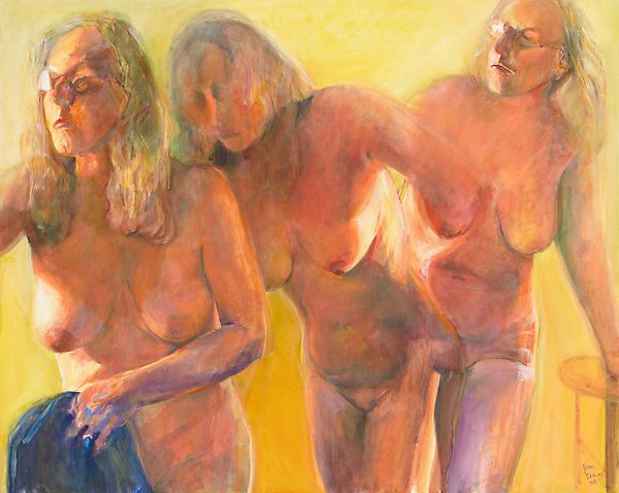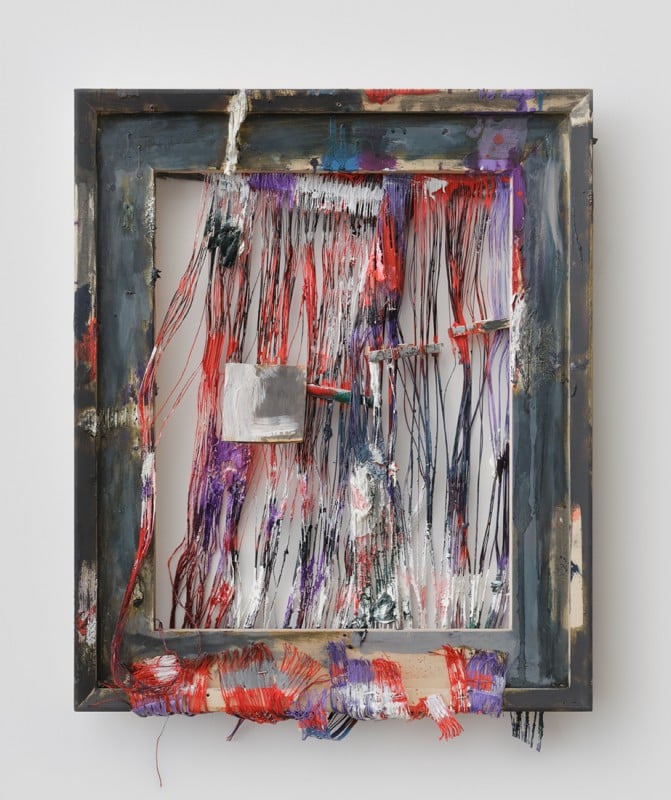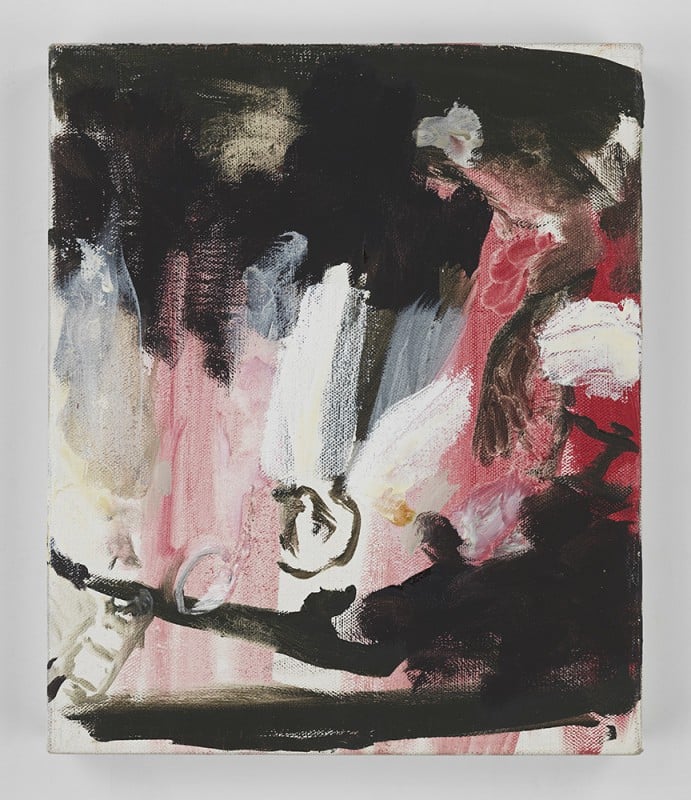Art & Exhibitions
10 Killer Quotes on Feminism and Painting
Rosy Keyser, Cecily Brown, and Joan Semmel know what's what.

Photo: NY Arts Beat.
Rosy Keyser, Cecily Brown, and Joan Semmel know what's what.

Cait Munro

Last night, Maccarone Gallery in New York’s West Village held a panel discussion on feminism that was as packed as any major opening we’ve been to recently.
The occasion was a conversation between three very different artists—Cecily Brown, Rosy Keyser, and Joan Semmel—on two key topics: painting and feminism. Alison Gingeras, curator at the Dallas Contemporary, moderated the talk, which, admittedly, was between a group of straight white women. (We wish the panel would have been more diverse, almost a half a century after the stirrings of second-wave feminism.) Gingeras broached subjects such as motherhood, male vs. female ambition, and what Linda Nochlin’s 1971 essay “Why Have There Been No Great Women Artists?” means today.
It was standing room only, even for artists Marilyn Minter and Rachel Feinstein, and Salon 94 founder Jeanne Greenberg Rohatyn. Ten things artnet News learned, while sandwiched in between two sets of shoulders, are below.
1. Take a position.
“There are various ways to take a position in any kind of revolution. Feminism itself has taken different tracks at different times…For a while you were told ‘my goodness, painting is for men, why do you paint?’ Of course, now that men don’t want to paint…” -Joan Semmel
2. Be determined.
“A lot of what I make has to do with a determination to go in there and be okay with just not knowing what’s going to come out.” -Rosy Keyser

Rosy Keyser, from “The Hell Bitch” at Maccarone Gallery.
Photo: Courtesy Maccarone Gallery.
3. Stay focused.
“In the 19th century, a lady was told not to excel too much at one thing…I only excel at a few things. I don’t cook, I don’t drive, and I find that quite common now. I work very hard to only do a few things. What matters is my relationship with the canvas and how I’m going to deal with it that day.” -Cecily Brown
4. Question ownership.
“I’ve always wondered, like, what is so masculine about abstraction? How did men get the ownership over this?” -Cecily Brown
5. Feminism counts.
“I don’t think about feminism when I’m in the studio. When I’m in the studio I’m thinking about my painting, and I’m thinking about what that painting means to me and how it resonates…then, I want to take it out into the world. When I go to take it out into the world, that world has to be ready to receive it. And that’s when I need my feminism.” -Joan Semmel
6. Looking is important. But so is creating.
“I love to look at art, I love to look at paintings, and I almost feel like the experience isn’t complete until I’ve made something of my own.” –Cecily Brown
7. Take some tips from the canon.
“Personally, I love a lot of the [male] canon. I was in love with those men, and I couldn’t give it up, and I thought, ‘Oh, I must be a terrible feminist.'” -Joan Semmel

Cecily Brown, from “The English Garden” at Maccarone Gallery.
Photo: Courtesy Maccarone Gallery.
8. Sexuality is complicated.
“Men relate to sexuality a lot more visually than women. Women turn the lights out, and men turn them on.” -Joan Semmel
9. Start a revolution.
“There needs to be a revolution every single day.” -Rosy Keyser
10. And something for all the Georg Baselitz fans (see Georg Baselitz Makes Disgraceful Sexist Remarks on Women Painters, Again).
“There are many great women artists. And we shouldn’t still be talking about why there are no great women artists. If there are no great, celebrated women artists, that’s because the powers that be have not been celebrating them, but not because they are not there.” -Joan Semmel
Rosy Keyser’s awesomely-titled solo show “The Hell Bitch” is on display at Maccarone until June 6. Cecily Brown’s “The English Garden” is also on display at Maccarone and will be open until June 20. Joan Semmel’s “Across Five Decades” closed at Alexander Gray gallery on May 21.